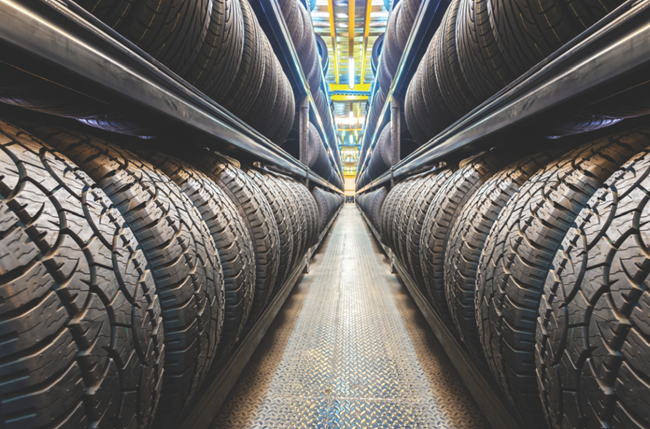We use cookies to ensure that we give you the best experience on our website. If you continue without changing your settings, we will assume that you are happy to receive all cookies on the Business Car website. However, if you would like to, you can change your cookies at any time

The start point for the best source of fleet information |
Driver training advised to counter EV tyre wear
Date: 14 November 2023 | Author: Sean Keywood

Fleets should consider driver training to reduce high levels of tyre wear being reported with EVs, according to Fleetcheck.
The software company said that the additional weight and performance of EVs compared with petrol or diesel cars meant that overly aggressive company car drivers were getting through tyres much more quickly than expected.
Fleetcheck managing director Peter Golding said: "The data behind this is still relatively scarce and much of what we are hearing is anecdotal but it seems as through the range of wear you can expect from different driving styles is wider for EVs than you would see for petrol or diesel.
"The reasons for this are, it appears, the facts that EVs tend to be much heavier, model-for-model than internal combustion engine (ICE) cars and often offer faster acceleration. This means that a driver who accelerates sharply and brakes hard puts a lot of pressure on their tyres and can get through a set very quickly indeed.
"At the other end of the scale, it looks as though EV drivers who are much more circumspect in their approach are achieving much lower tyre wear, perhaps not as good as the average for petrol and diesel vehicles, but much closer to being acceptable for fleets. Really, fleets want all drivers to be driving this way."
Golding said that the potential rate of wear made it arguably much more important to monitor behaviour of drivers using EVs and consider training for the worst offenders.
He said: "If EV drivers are, for example, adding an extra set of tyres for an average four-year car life cycle, this will have a big impact on fleet service and maintenance costs and fleets should be taking proactive action.
"Telematics and connected car technology can provide a lot of useful information about individual driving styles and this can be imported into software such as ours for analysis, linking this directly to the rate of tyre replacement.
"It appears there is a strong incentive to introduce driver training and other measures to ensure that EV drivers adopt a more conservative style on the road, something that is proven to work in the vast majority of cases. Of course, encouraging drivers to slow down and be more careful will also have a positive impact on accident rates."











